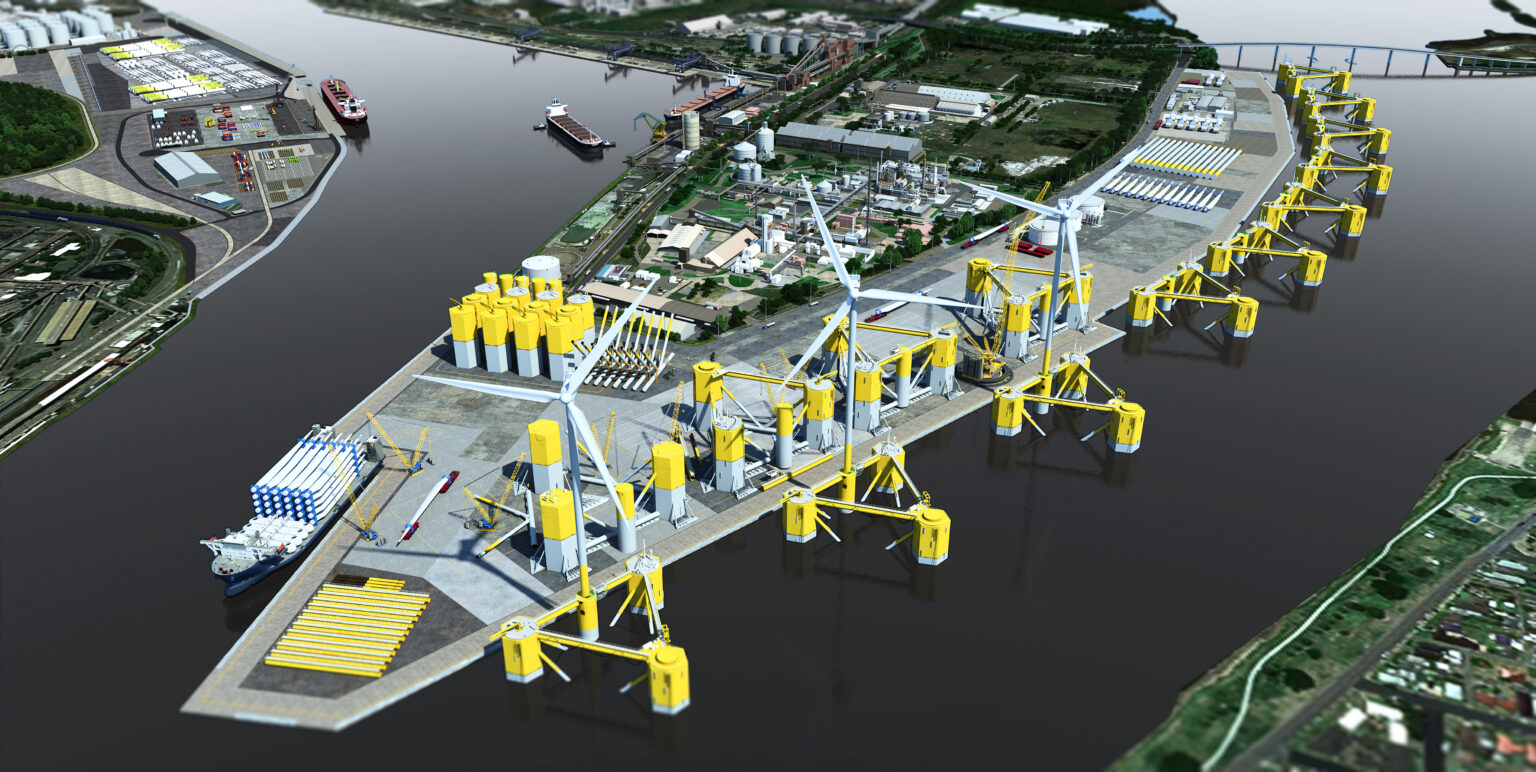The Port of Newcastle has revealed its intention to become an offshore wind hub and to service floating wind turbine projects in the Hunter offshore wind zone.
The Australian port is owned by Macquarie’s Infrastructure Fund and China Merchants Port Holdings Company. It is located adjacent to the 1,854 sq km Hunter offshore wind zone.
It has the potential to generate up to 5 GW of renewable wind energy, enough to power an estimated 4.2m homes. The development of the area will utilise floating offshore wind technology.
Port of Newcastle is ideally located adjacent to the 1,854km2 Hunter offshore wind zone, which was declared by the Minister for Climate Change and Energy, Chris Bowen on 12 July 2023.
The area has been identified to accommodate 5 gigawatts (GW) of offshore wind development, which would utilise Floating Offshore Wind technology (FOW).
Given the Port of Newcastle’s (PON) deep draft navigation channel, available development area, and absence of bridge infrastructure, it stands as a prime candidate for supporting FOW deployment.
To ensure Port of Newcastle’s (PON) suitability for supporting FOW technology, PON commissioned a study to assess the port and identify the quantity and size of required port facilities to meet the needs of the Hunter offshore wind declared area buildout goal of 5GW.
The study indicated that with investment and appropriate stakeholder consultation, the PON has the physical characteristics to support the FOW industry in New South Wales (NSW) and the wider Australasia region, in a variety of functions including, marshalling, assembly, staging and operations and maintenance. To service all stages of the FOW development, PON would service the industry via multiple sites locations across the Port.
This strategic development has the potential to not only establish the port as a central hub for floating wind projects in the Australasia region, but also to attract Original Equipment Manufacturers (OEMs) for both floating and fixed-bottom wind developments due to the port’s strategic proximity to the designated and prospective wind development zones in NSW, New Zealand and Victoria, with Bass
Strait only a two-day ocean transit.
Port of Newcastle will be able to further engage directly with project proponents once licences for the Hunter Offshore Wind Zone have been issued by the Commonwealth Government.



























